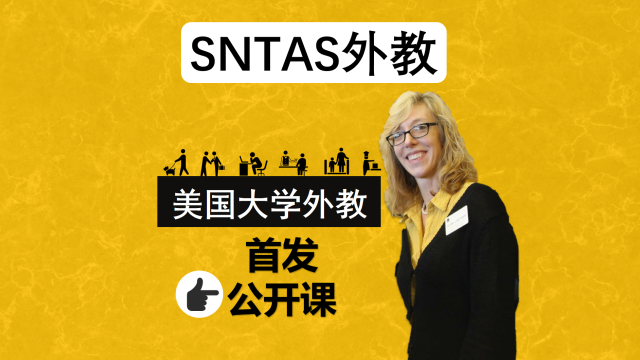老外教口音:如何说一口标准伦敦音(视频)
作者:沪江英语
2010-10-06 08:00
This is a short video made to show you the nicks and tricks behind speaking with a cockney accent it is presented by Gareth jameson a well known actor and also a voice coach so if you ever wanted to know how to pull off that accent waste no time and dive right in into the video.
这个短片是为了向你介绍带着伦敦腔口音说话时需要注意的问题和技巧,由著名演员兼发音指导加雷斯詹姆逊为大家呈现。如果你想知道如何学会这种口音,别犹豫了马上来看视频吧。
Hello I'm Gareth Jameson I'm an actor and a voice coach from and here's some tips for working on your voice.
大家好,我是加雷斯·詹姆逊,来自的演员和发音指导,这里有一些关于怎样练习发音的小技巧。
Now the key to any accent is to isolate the specific sounds that occur in that accent. Now when we're talking about a cockney accent, we're actually going to talk about an accent that's more general to the southeast of England and east London then. And term cockney refers very specifically to people in a very particular part of London. This is more general.
掌握任何口音的关键都是分离出它里面出现的特有的音。当我们说到伦敦腔,事实上我们是要说在英国东南地区和伦敦东部更常见的口音。但更通常情况下,cockney这个词特指伦敦某一特定区域内的人。
Now the first sound we'll look at is the sound you get with the letters "th" for together. Normally you pronounce "thh" with the tongue sticking out, but for the cockney accent we'll do it slightly differently. Listen to this sentence :"This maths thing is a lot of bother." "This maths thing is a lot of bother." Notice the "th" at the beginning of the of the word "this" has changed to a "d", "dis maths thing". And then in the word "maths" and "thing" it's become "thhh", "dis maths thing". And finally in the word "bother" it's become like a "v" sound "bover", "dis maths thing is a lot bover." Notice also at the end of that phrase we've got the word "bother". now normally we end that with a very small mouth "bother", but now we're going to make much bigger, "bover". Much wider with the same with "mother", "bu'er".
我们首先来看由字母“th”组合在一起发的音。一般你伸出舌头发“th”,但是伦敦腔中我们发音有一点小不同。听这句话:“This maths thing is a lot of bother.”“This maths thing is a lot of bother.”注意单词“this”开头的“th”的发音变成了“d”,“dis maths thing”。然后单词“maths”和“thing”中的“th”变成了“thhh”,"dis maths thing"。最后单词“bother”里它变成了像“v”一样的发音,“bover”。“dis maths thing is a lot bover.”同时也要注意这个短句的最后有一个单词“bother”,一般我们以小口型首尾,“bother”。但现在我们要把口型放大很多,“bover”,和“mother”“bu'er”一样嘴张很开。
"bu'er" "butter" is a good word to show you another feature of the cockney accent, something called the "glottal stop". When you meet a "t" sound, especially at the ends of words or in the middle between two vowels and we're going to replace it with something called a "glottal stop". This is the same sound you get in the word "uh-oh". So if you want to learn how to do your glottal stop, give me a few "uh-oh" and get that sound in the middle "uh-oh". That is where you put in "bu'er", "bu'er", "be'er", "le'er". Try this little sentence:"that is wha'a lo'a bother." "wha'a lo'a bother","wha'a","lo'a". Notice that it's very wide, "mother","bother". Very good.
“bu'er”“butter”,这是个向你演示伦敦强的另一个特征的好例子,这个特点叫“声门闭锁音”。我们在单词末尾或者两个原因之间尤其需要“t”音,现在我们用叫做“声门闭锁音”的东西来代替它。这种发音和你再说“uh-oh”的时候是一样的,所以想学会怎么发声门闭锁音,说几次“uh-oh”,然后找出中间的那个音,放在"bu'er" "bu'er" "be'er" "le'er"的中间。试试这个短句:"that is wha'a lo'a bother" "wha'a lo'a bother" "wha'a" "lo'a"。注意口型很开,"mother""bother"。非常好。
Now another vowel that we're going to work on is the "i" vowel. So when I say "like" or "fine" I've got a wide mouth, but we're going to go much deeper now, "like". It's almost like the "oi" in "oil", "like","like". So we get "i like nice tights". That's "i like nice tights" becomes "i like nice tigh's". Notice again that glottal stop at the end of tights. Finally the "hour" sound. If you've ever seen my fair lady, this is the typical allies to do sound. We say "how" "now" "brown" "cow" if you are standard British speaker, but the cockney accent is "ah", "ah" "nah" "bran" "cah". To get this really right, you need to drop off those "h" sounds from the beginning as well. So you don't say "hah", you say "ah", "nah" "bran" "cah". You'll be fitting into these in no time.
我们要学习的另一个元音是“i”。当我说“like”或者“fine”的时候,我嘴张得很开,但现在我们要让口型更深,“like”。几乎和“oil”里面的“oi”差不多了,“like”“like”。所以我们说“I like nice tights”,这是“I like nice tights”变成了“I like nice tigh's”。再次注意tights末尾的声门闭锁音。标准英语中说"how" "now" "brown" "cow",但是伦敦腔中它们是"ah","ah" "nah" "bran" "cah"。要把这个音完全发正确,你也要省去开头的“h”音。所以你不说"hah"而说"ah", "nah" "bran" "cah"。马上你就可以适应了。
声明:音视频均来自互联网链接,仅供学习使用。本网站自身不存储、控制、修改被链接的内容。"沪江英语"高度重视知识产权保护。当如发现本网站发布的信息包含有侵犯其著作权的链接内容时,请联系我们,我们将依法采取措施移除相关内容或屏蔽相关链接。
- 相关热点:
- 英语口语练习
- 美国英语
- 名师教你你速成英美音
- 红字第二十二章











